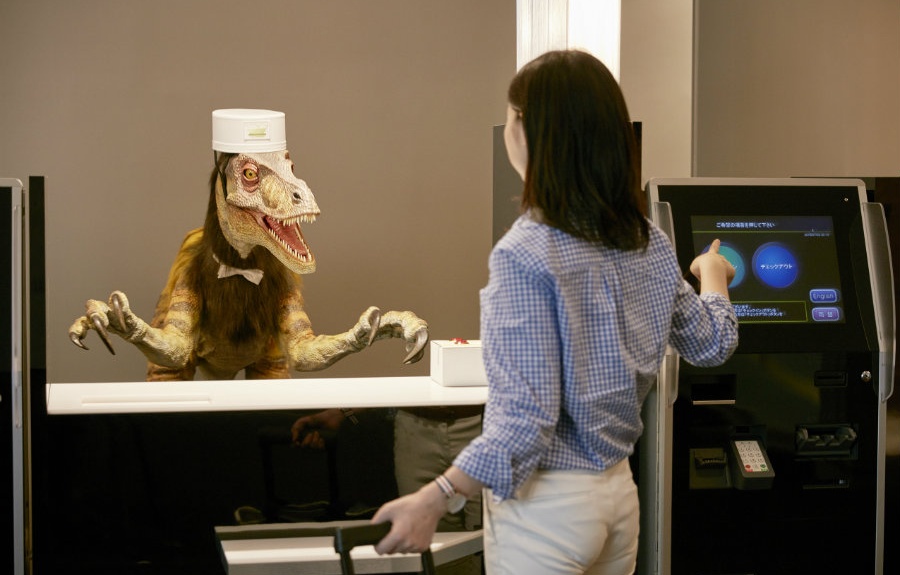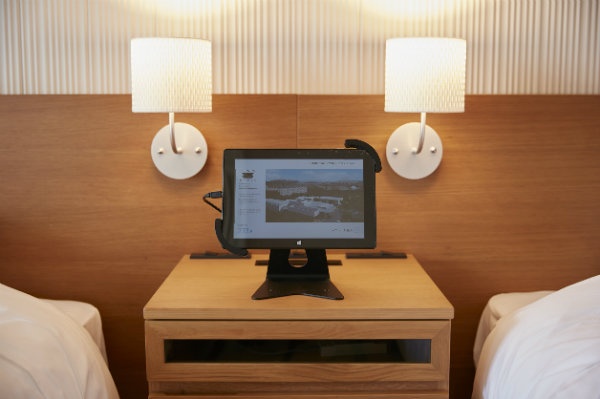'Henn-na Hotel': Smart, Weird & Wonderful
The Henn-na Hotel (literally, “Weird Hotel”), which opened in July 2015, is located within the Huis Ten Bosch theme park in Nagasaki Prefecture’s Sasebo City, a destination that welcomes large numbers of guests from both Japan and abroad.
By Highlighting Japan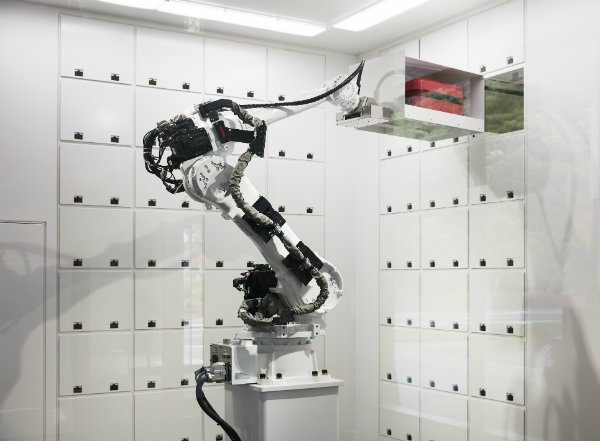
http://www.gov-online.go.jp/eng/publicity/book/hlj/html/201602/201602_05_en.html
The first thing you’ll see when you arrive at the hotel’s entrance is the cloak robot. Normally programmed for tasks such as loading boxes in a warehouse, this industrial-use robot stores the luggage of hotel guests inside 49 cloak boxes.
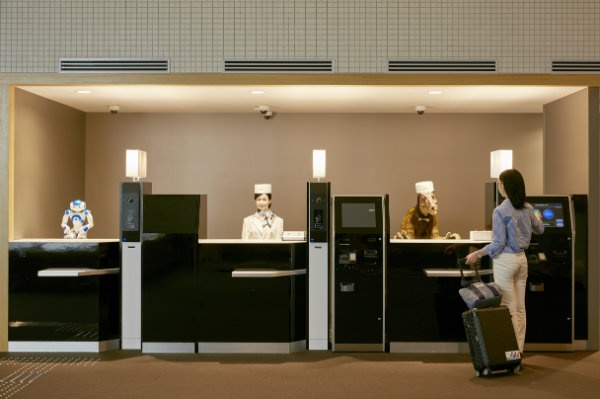
http://www.gov-online.go.jp/eng/publicity/book/hlj/html/201602/201602_05_en.html
Inside at the front desk are three robot receptionists—one tiny bot, a dinosaur and a female humanoid—that handle check-in procedures. The female humanoid robot will look into guests’ eyes, smile, and at times even wink. The dinosaur robot is very popular with both children and adults of all ages, regardless of nationality.
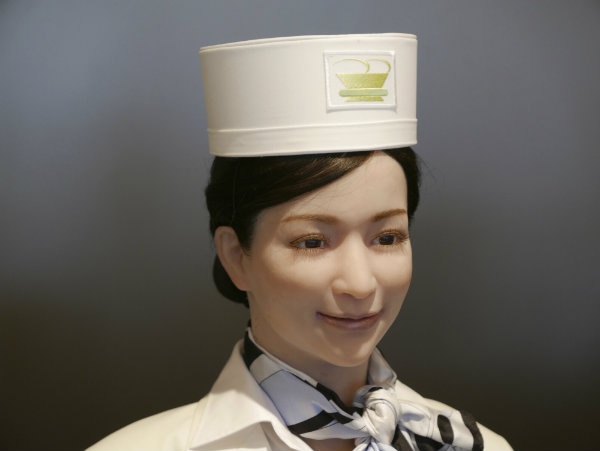
http://www.gov-online.go.jp/eng/publicity/book/hlj/html/201602/201602_05_en.html
“The female reception robot is so real that some children are afraid of her,” reports Takeyoshi Oe, the hotel’s general manager. “Because she’s a humanoid, she has been built to re-create the smooth movements of a person without mechanical noise. Her natural-looking facial movements, such as smiling, are generated through the compression and expansion of air in her facial structure.”
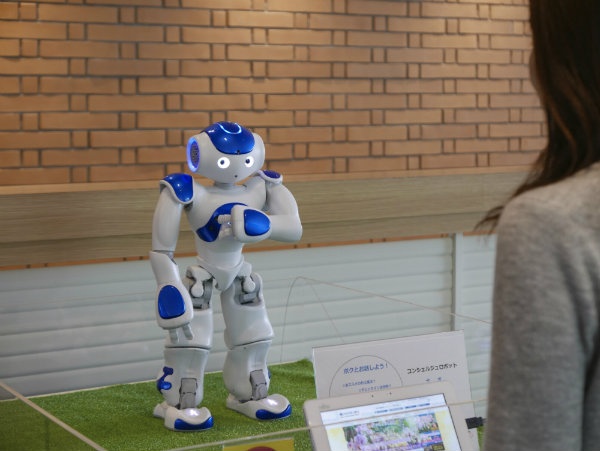
http://www.gov-online.go.jp/eng/publicity/book/hlj/html/201602/201602_05_en.html
In the lobby, a concierge robot offers information about the hotel and Huis Ten Bosch...
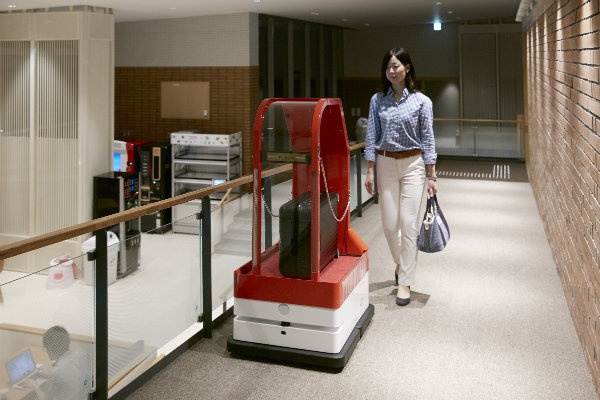
http://www.gov-online.go.jp/eng/publicity/book/hlj/html/201602/201602_05_en.html
...and a porter robot is on hand to guide patrons to their rooms. The highly mobile porter robot has a motion sensor to detect people, allowing it to avoid colliding with guests or accidentally abandoning those following it.
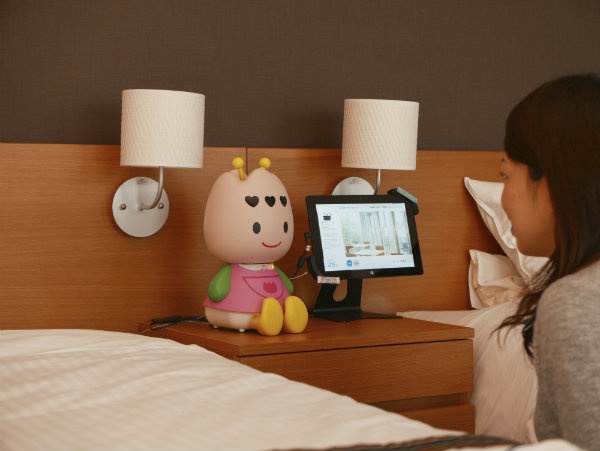
All guest rooms feature a robot—nicknamed Tuly—so that guests exhausted after spending the day at Huis Ten Bosch can accomplish tasks such as adjusting the room lighting or arranging wakeup calls through voice commands without ever leaving their beds.
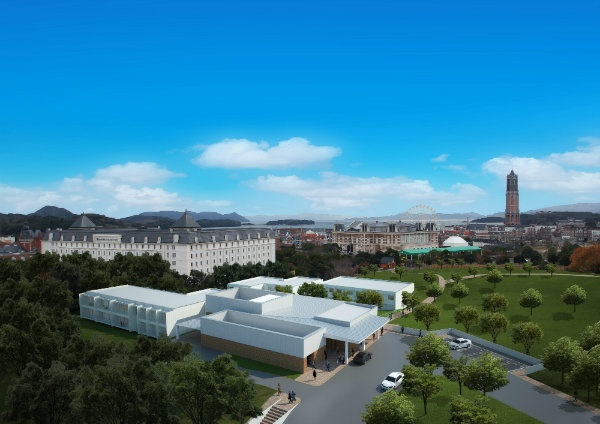
http://www.gov-online.go.jp/eng/publicity/book/hlj/html/201602/201602_05_en.html
“Huis Ten Bosch is teeming with five-star hotels, but it takes significant labor and energy to maintain services deserving of a star rating,” Oe states. “That’s how the idea for the Henn-na Hotel came about—to create an energy-efficient smart hotel unlike anything you’ve seen before. By incorporating robots and using radiant panels as an air-conditioning system, we were able to drastically cut labor and energy costs. We’ve also reduced guest room amenities to a minimum by offering them for purchase in a vending machine in the lobby, and with the exception of our deluxe rooms, instead of installing televisions, we’ve provided tablets for guests to enjoy movies and other forms of entertainment. A 72-room hotel would normally require a staff of about 22, but we have less than half that number, with 10 staff members always onsite.”
While the incorporation of robots has merits such as standardizing the quality of service and lowering labor costs—not to mention the entertainment aspect—there are still concerns that need to be addressed, such as emergency support.
The Henn-na Hotel has solved this particular issue by ensuring that guests can speak with a human staff member through their in-room tablet, and a human monitor observes much of the hotel’s public facilities via security camera 24 hours a day. Considerable research has gone into determining which services only humans should perform and which ones robots can provide, creating a neat division of labor between the two.


